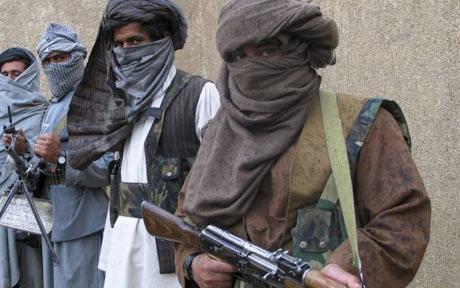
One of the more striking aspects of the McChrystal report on Afghanistan is the US military’s assessment of the Taliban’s shadow government:
The [Quetta Shura Taliban: QST] has a governing structure in Afghanistan under the rubric of the Islamic Emirate of Afghanistan. They appoint shadow governors for most provinces, review their performance, and replace them periodically. They established a body to receive complaints against their own “officials” and to act on them. They install ‘shari’a’ courts to deliver swift and enforced justice in contested and controlled areas. They levy taxes and conscript fighters and laborers. They claim to provide security against a corrupt government, ISAF forces, criminality, and local power brokers. They also claim to protect Afghan and Muslim identity against foreign encroachment. In short, the QST provides major elements of governance and a national and religious narrative. [The Haqqani Network: HQN] and [Hezb-e Islami Gulbuddin: HIG] co-exist with, but do not necessarily accept, the QST governing framework and have yet to develop competing governing structures.
The Taliban’s governing body is so structured that it has a formal review process for gauging its efforts:
The insurgents have two primary objectives: controlling the Afghan people and breaking the coalition’s will. Their aim is to expel international forces and influences and to supplant [the Government of Afghanistan]. At the operational level, the Quetta Shura conducts a formal campaign review each winter, after which Mullah Omar announces his guidance and intent for the coming year.
None of this is all that surprising. We’ve known for some time, of course, that the Taliban and its allies are a formidable foe. Al Qaeda’s Shadow Army, in particular, has demonstrated a remarkably disturbing degree of organization.
But the Taliban’s shadow government is predicated on the belief that its prospects for ruling Afghanistan again at some point in the future are not dire. As the McChrystal Report makes clear, the Taliban and its allies currently have the initiative. If the military is not given what it needs to radically transform the dynamic in Afghanistan, it would not take all that long for the Taliban to rise to power once again.
For its sponsors (including members of the Pakistani military and intelligence establishment) and leaders, that is the goal.
Are you a dedicated reader of FDD's Long War Journal? Has our research benefitted you or your team over the years? Support our independent reporting and analysis today by considering a one-time or monthly donation. Thanks for reading! You can make a tax-deductible donation here.








1 Comment
We will not see a Taliban offensive which will drive the NATO forces out of the country. But we will see an ugly war of attrition in which insurgents have a certain share of advantage.
And of course the Taliban are interested in having a government of their own.
I’ve once read about a woman who was raped and stripped of her belongings by a “friend” of her. She went to the official judge and waited for three years.
Tired of that she went to a “judge” of the Taliban and ruled in her favor in a matter of days.
No wonder that this woman will support the Taliban.
The political system of NATO-Afghanistan is corrupt and ineffective.
More troops will not help to regain the lost confidence.
The political system in NATO-Afghanistan needs to be changed from it’s roots.
The elections would have been a good start.
But the NATO missed the chance and will have to pay the price for that in the long term …